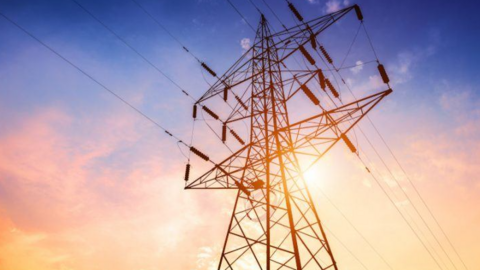How business leaders can tackle the energy crisis

Veolia Ireland’s Fergus Elebert discusses the rising cost of energy and how it’s squeezing businesses with already low profit margins.
The latest purchasing managers’ index (PMI) from AIB shows that while inflationary pressures cooled in February, high energy and supplier prices added to burdens placed on businesses in both the retail and manufacturing sectors.
With continued instability seen in markets worldwide, the pressure is on for business leaders to step up and find ways to combat the rising cost of energy and strain on supplies, and seek out solutions to weather this storm.
The energy affordability crisis
The effects of the energy crisis are being felt across the world as global conflicts have sent the prices of oil and gas skyrocketing, placing businesses under serious pressure when it comes to affording the costs associated with daily operations.
These steep increases are due in part to the fact that Ireland imports 70pc of its energy to generate electricity, heat buildings, transport goods etc, leaving businesses vulnerable to price hikes when import prices are affected by situations like global conflicts.
For businesses operating with a low-profit margin, including SMEs, retail and the hospitality sector, the cost increases have added an extra burden.
A sector that is often overlooked when it comes to the energy crisis is the manufacturing industry. While energy costs have risen across every industry, this increase affects the manufacturing industry acutely as plants use a lot of electricity daily.
Input costs have risen also as the cost of raw materials like chemicals has increased which takes a toll on manufacturing companies.
Wider energy supply risks
On top of rising costs, a major concern for businesses across all sectors is the threat of energy supply risks stemming from the war in Ukraine.
While Ireland is slightly sheltered from this problem because the country’s main gas import supplier is the UK, there has still been a notable increase in the number of amber alerts on the power systems as well as an increased risk of a failure in electricity supply or electricity supply disruption during the winter months.
The growth in the number of data centres has also increased electricity demand and this has put added pressure on an already strained system.
Energy shortages are always a concern for any industry. Luckily, the supply of energy has been carefully managed through the winter months and we have not seen any reductions in availability.
What businesses can do to combat these issues
Despite these challenges, there are steps businesses can take to protect themselves from rising costs and energy supply risks.
The process of investing in sustainable solutions can be a daunting one, but here are 3 tips identified by leaders from the Franco-Irish business community to help you get started.
Understand your energy usage
The key to developing a successful energy plan is to clearly understand how and where you use energy in your business. Ongoing monitoring can help you see what’s working for you.
Conduct an energy audit through the Sustainable Energy Authority of Ireland to understand where to cut costs in the short term and become more energy efficient in the longer term.
Make a business continuity plan
Work with your wider team to ensure that your business can continue to run should fuel be harder to source. Start by looking at ways to make your business energy self-sufficient as well as more efficient, thereby reducing reliance on the grid.
Invest in sustainable energy solutions like solar panels, wind energy or biogas to reduce energy costs and increase resilience.
Have backup generation or battery storage on site, particularly for large businesses that use a lot of energy, to provide energy security. It is possible to earn money by selling your backup capacity to the grid at peak hours.
Consider alternative energy options
Creating energy for your business is not as daunting of a task as it might seem, and dependence on an energy grid is not the only option when considering a secure supply of energy.
Examine all aspects of the business to evaluate a solution that best suits the company’s daily needs.
Each renewable offering provides different strengths and weaknesses, and they won’t all suit every business, so take the time to do thorough research.
Don’t panic and accept a solution not suited to your business or base your renewable energy choice on what’s popular or widely known. Instead, take the time to work through a plan to determine which sustainable solution will work best for your specific needs and circumstances.


